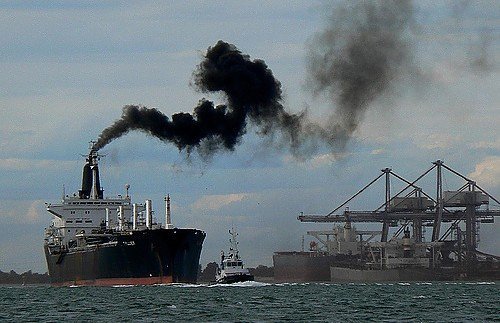No firm CO2 deal at MEPC70

After the surprise euphoria of Thursday’s 0.5% sulphur cap limit by 2020 announcement, shipping reverted to its normal self today with IMO member states failing to agree on how to decarbonise shipping.
While notably quicker than aviation’s pledge to cut emissions starting 2027, the IMO faces criticism for failing to thrash out a more substantial commitment today on how to cut CO2 emissions. The IMO approved a roadmap through to 2023 on the global adoption on an emissions reduction strategy, scheduled to come into force in 2018 at the conclusion of MEPC70 today.
The ‘Comprehensive IMO strategy on reduction of GHG emissions from ships’ was introduced as the clock ticked to the end of the IMO gathering in London today and will come into force alongside a new mandatory data collection that will apply to approximately 85% of CO2 emissions from international shipping.
“The data collection system will equip IMO with concrete data to help it make the right decisions, as well as enhancing its credentials as the best placed and competent forum for regulating international shipping,” said IMO secretary-general Kitack Lim.
Vessels of more than 5,000 gt will have to collect data of consumption, alongside specified data covering proxies for transport.
NGO Transport & Environment (T&E) was not happy with today’s outcome.
“Nearly 20 years after being tasked with tackling climate change impacts from shipping, the IMO has enacted only one measure so far, the EEDI, and for new ships only,” Bill Hemmings from T&E said. “Yet it now stands in disarray. Improving ship efficiency is a no brainer and a classic example of a ‘win-win’, but apparently the IMO prefers open-ended reviews to concrete action.”
John Maggs, the president of the Clean Shipping Coalition, hit out, saying: “It beggars belief that the IMO should abandon plans to increase the stringency of design standards that are being easily met and exceeded years ahead of schedule. Backsliding is an IMO speciality, but this is a particularly egregious and irresponsible example.”
